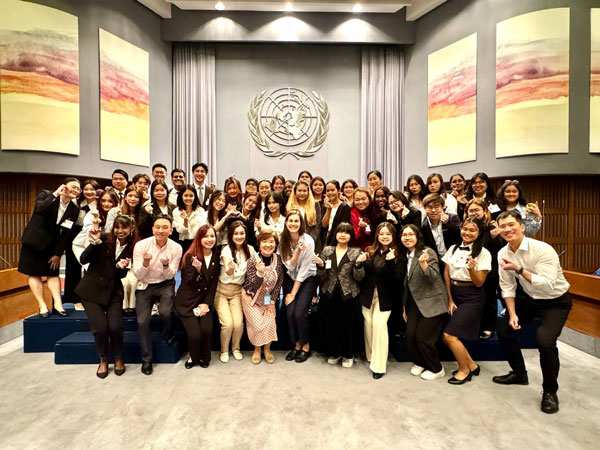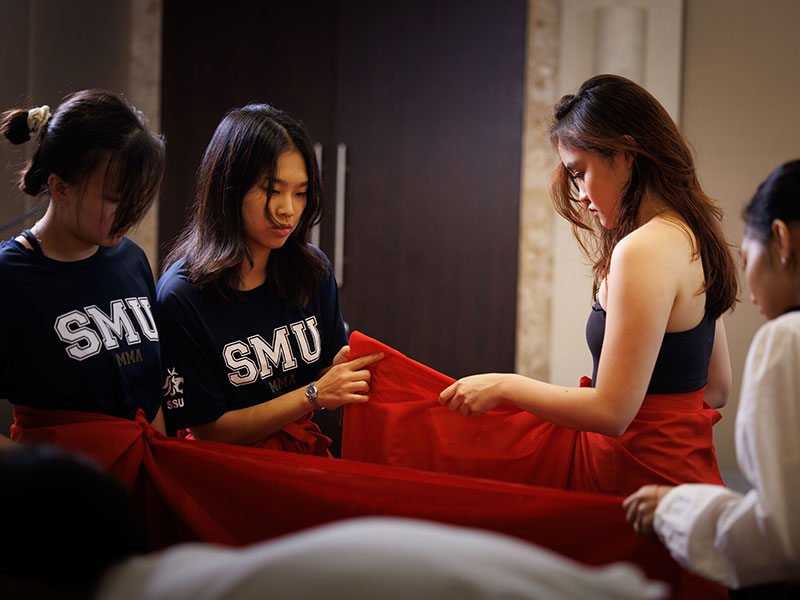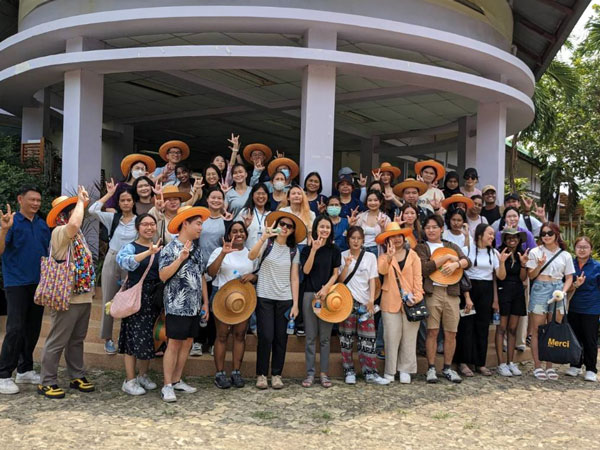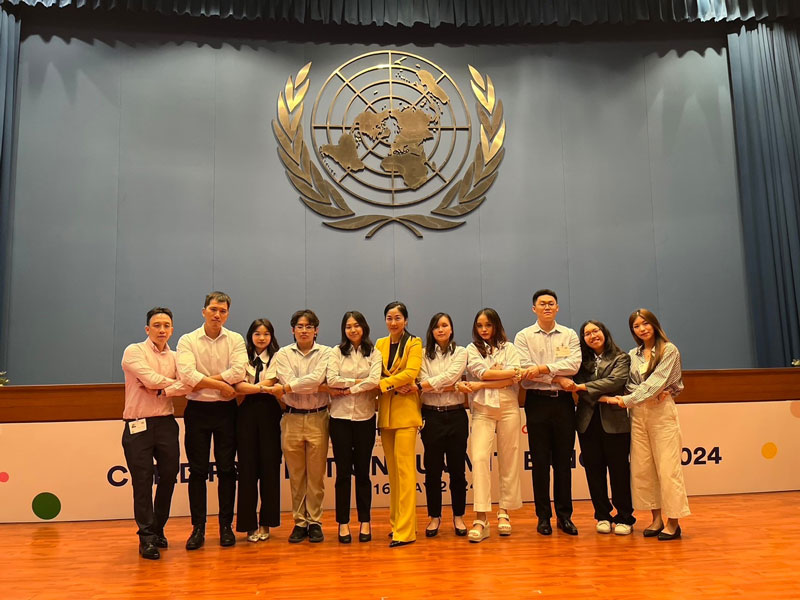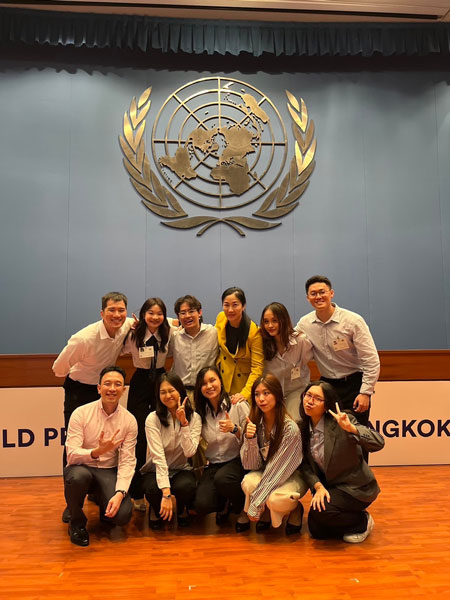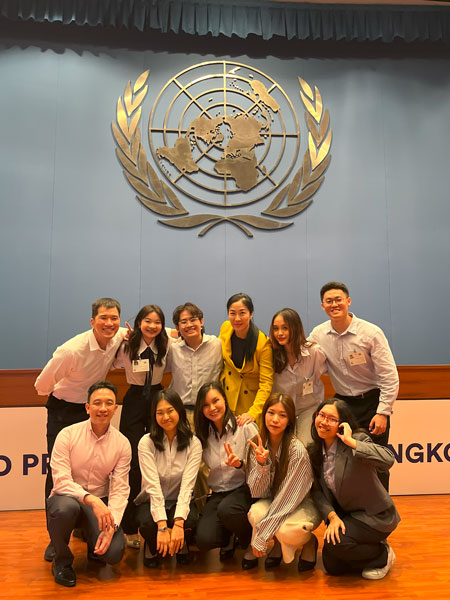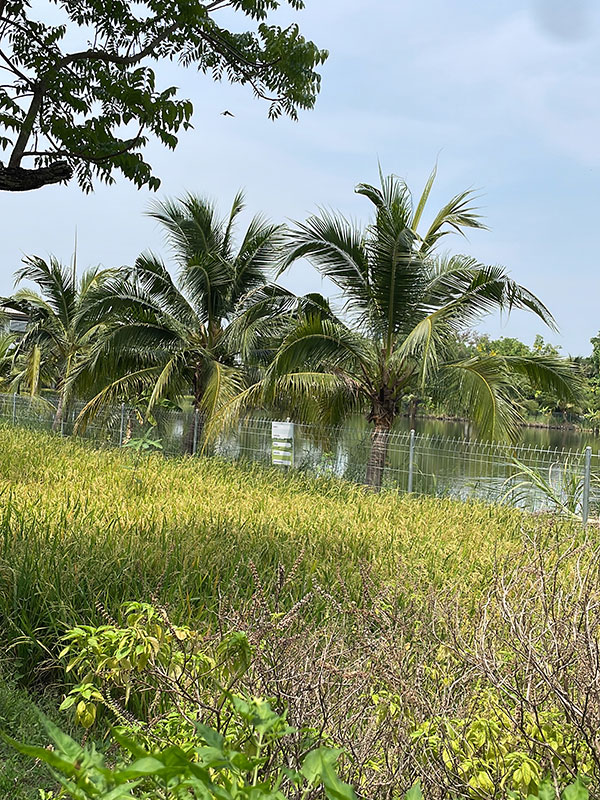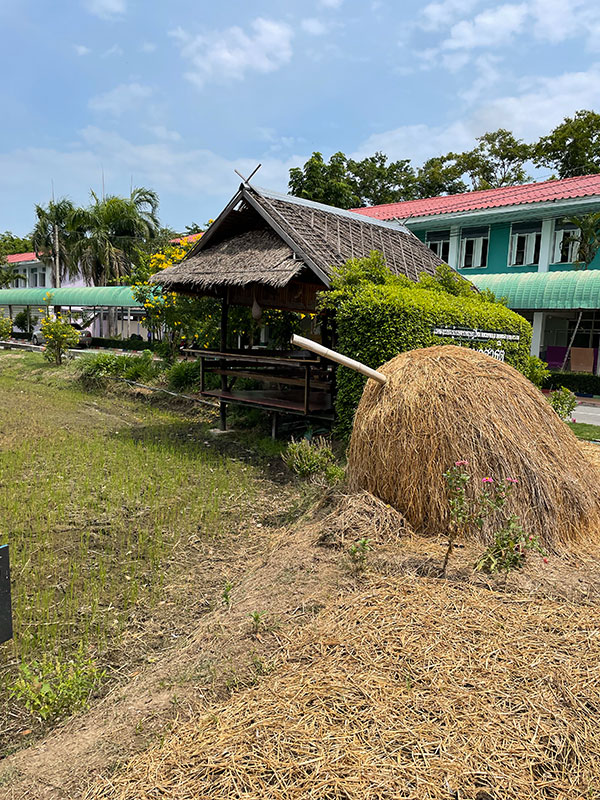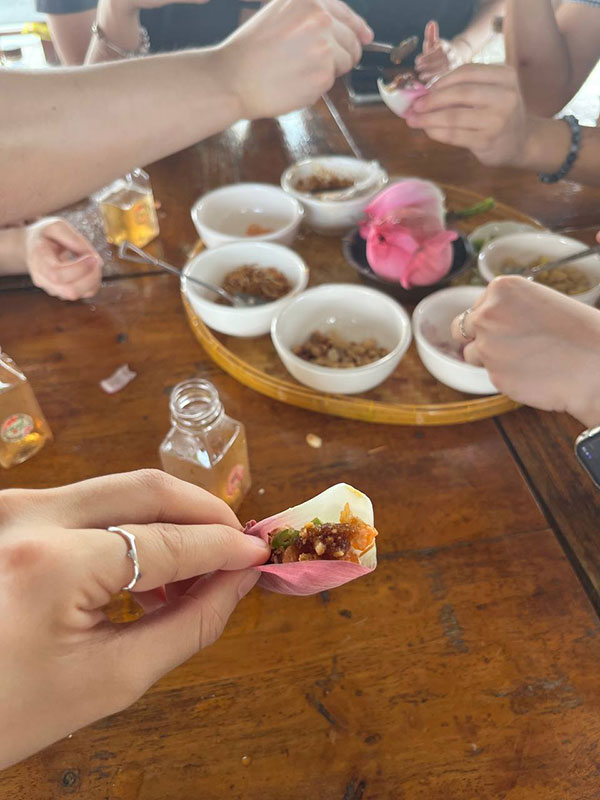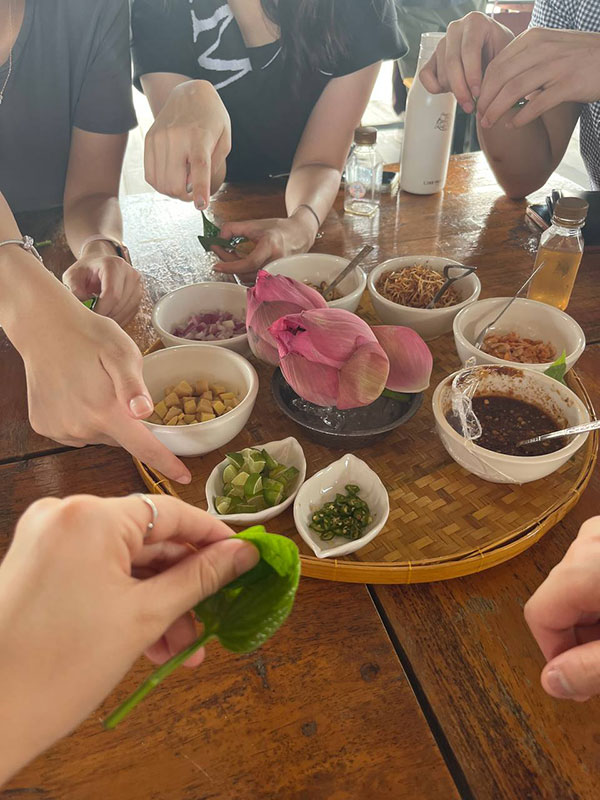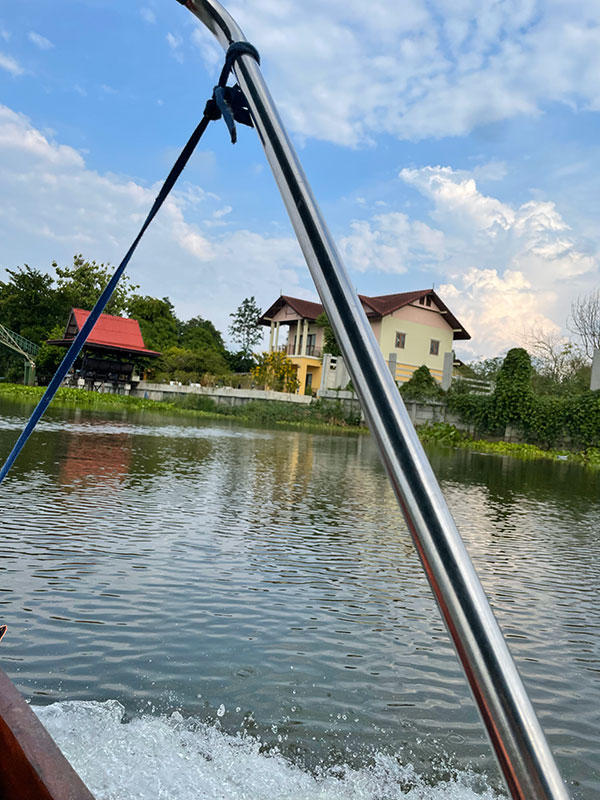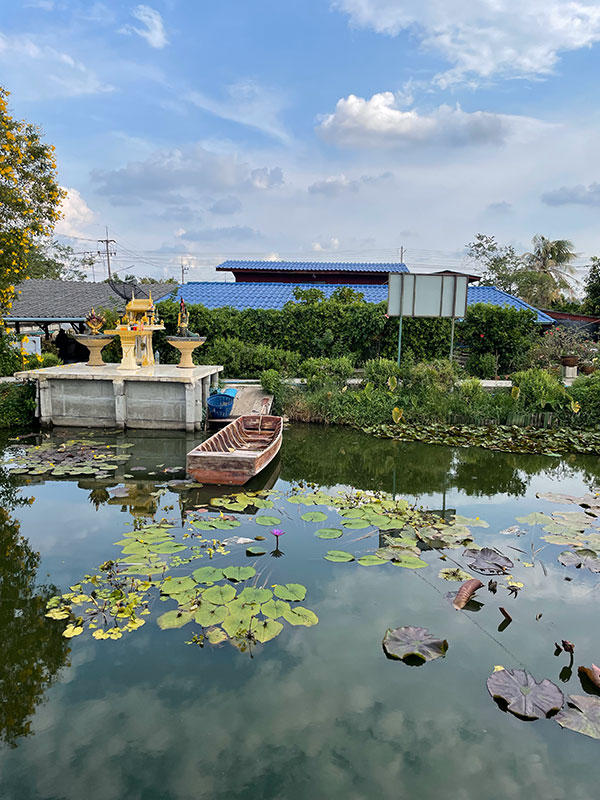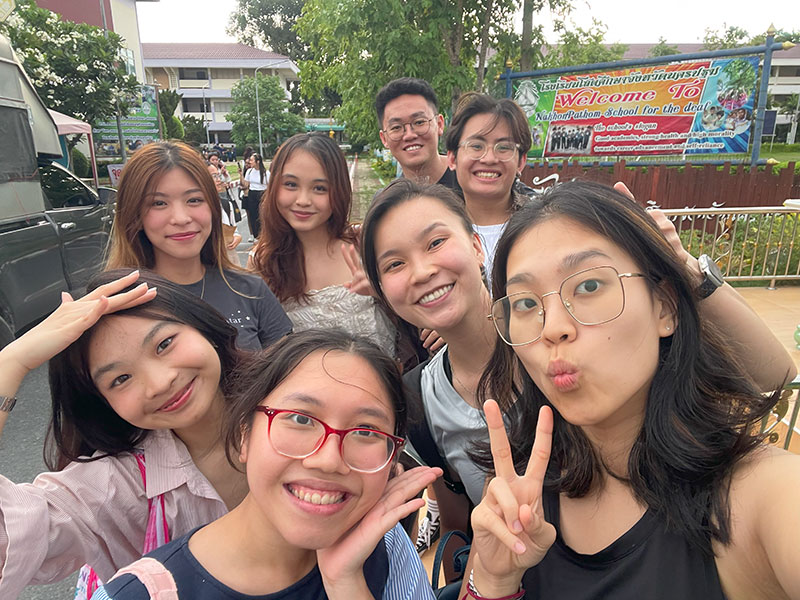
BANGKOK TUKTUK MY BREATH AWAY
by Andrea Christine Suki
SMU-X Overseas Course: GA308 Applied Social Sciences in Globalised Asia – Exploring Social Change in Bangkok
Destination: Bangkok, Thailand
ABOUT THE COURSE
Millions of tourists visit the Bangkok very year, drawn to the city’s rich history, culture, and creativity. While the city does offer a rich tapestry of sights and experiences, political tensions, economic disparities, and social inequalities are often out of sight for most foreign visitors. The city’s dense urban landscape also exacerbates presents a host of issues that commonly afflict rapidly growing metropolises, including pollution, rising temperatures, mental health issues, etc. Over the past few decades, many non-governmental organisations have stepped up efforts to address social issues in the city with considerable success – from support of migrant workers to human trafficking, HIV/AIDS to sexual violence.
This course will explore the success factors of social change programmes in Bangkok through an interdisciplinary lens that draws from the fields of sociology, communication and management. In partnership with a Bangkok-based SMU-X partner, participants of this SMU-X Overseas programme will receive hands-on guidance on a real-world project to address a social issue in Thailand. Over the course of six seminars at SMU during Term 2, 2023-24, participants will learn about life and work in the land of smiles, public communication frameworks that drive social change, as well as the systems that support and challenge social change management in the city and beyond. A 11-day fieldwork and cultural immersion trip to Bangkok, Thailand (tentatively 5 May to 15 May 2024) will follow, where participants can expect to meet with social changemakers and to present their project deliverables to local stakeholders.
REFLECTIONS
On Friends:
Before the trip, I was rather apprehensive. I’m an introvert by nature and the prospect of living and working with a (relatively) new group of people for 11 days straight was rather daunting. Besides my anxiety about how social interactions would go, my 2 greatest fears were:
#1. That we would fight amongst ourselves; and/or
#2. That I would get food poisoning.
Only #2 came true. Unfortunately, it came true for 3 of us at once. Fortunately, it was a bonding experience and taught me a lot about myself, my groupmates, and our Mahidol University (MU) friends.
My groupmates Wei Jie and Celeste took such good care of us – they cooked for us, cleaned up and bought us medication. Belle and Pear (our MU friends) sent us photos of medication to show the pharmacy staff and even called to check up on us. Being unwell in a foreign country is usually a lonely and miserable experience. However, the food poisoning somehow brought my group closer. Now that we have laughed cried, laosai-ed and vomited together, we will be friends for life – blood brothers, but even grosser.
I was surprised by how close the group became in such a short period of time. It was heartwarming to see manifestations of our mutual understanding and appreciation for each other in little ways – everybody remembering Wei Jie’s favourite brand of Hong Thai inhaler and looking for it in every store that sold inhalers; shopping for each other and pick out items each other may like; remembering each other’s food preferences and sharing food. I am so grateful to have met this group of people, and that I get to call them my friends.
I was also extremely surprised by how close we got to our MU friends over this trip. Belle and Pear also admitted to us that they were (understandably) apprehensive before our first meeting. All our interactions had been online and we were unsure what it would be like in-person. It’s like 8 people collectively meeting on Tinder and being nervous for the first meeting, except that the first meeting was also in Bangkok. Thankfully, we quickly found that despite some minor language barriers and cultural differences, some things are universal – our love for food, our love for yapping, and our love for laughter.
On our presentation:
Our main task in this course was to devise solutions on how to promote the inclusion of people with disabilities (PWDs) in the workplace. We had the incredible opportunity of presenting these solutions to the United Nations Economic and Social Commission for Asia and the Pacific (UN ESCAP). My group worked well together because we have different skills. Some of us write better, some of us are better with tech, and some of us are better at speaking and presenting. The combination of our respective skillsets was pleasantly surprising and resulted in a smooth work process.
Personally, I’m very proud of our efforts and our presentation. Being told by the UN that we are “very hip-hop” will be a core memory of mine for years to come. I believe it will flash before my eyes as I take my last breath. I’m very proud of our teamwork, solutions, and presentation skills. This is the last presentation of my 4 years in SMU, and it was by far the best one. I’m so grateful for this opportunity, and for the feedback we were given before and after our presentation. As long as any part of our presentation was helpful or useful, I consider that a success.
On disability & inclusion:
This trip was incredibly eye-opening for me. To be honest, I had thought that Singapore would be more advanced in our inclusivity efforts. However, after the trip, I realized that I am sorely mistaken in many ways. We have so much to learn from Bangkok, both in the areas of disability inclusion and general diversity and inclusion efforts.
Our visit the Nakhon Pathom School for the Deaf was a fantastic example of this. What struck me was the school’s focus on providing the students with educational opportunities along with vocational opportunities. In Singapore, these tend to be quite mutually exclusive. Schools that provide vocational training usually place less emphasis on academic opportunities. Even within the streaming system, students are “limited” by the stream that they are in.
Our visit to the Asia-Pacific Development Center on Disability (APCD) was also extremely eye-opening. I enjoyed learning about the different opportunities that APCD provided for PWDs (such as training in the hospitality and F&B sectors) and how they completed their training. It was a fantastic example of how to empower PWDs while treating them with the dignity and personhood they deserve. I was especially impressed by the diversity in the APCD staff members. Oftentimes, Singaporean equivalents of APCD will provide training, but lack inclusion and representation within the staff and organization. APCD’s commitment to providing opportunities to PWDs in every aspect of its organization was admirable. It’s definitely something Singapore can afford to learn from.
Another thing I noticed was that many of the MU students had already picked up a little bit of sign language even before our visit to the school. I was so impressed by their efforts and their knowledge. Something that stuck with me was a conversation I had with one of the MU students from another group – she told us that she had picked up some conversational Chinese so that she would be able to communicate with us better. I was so touched by her level of dedication and effort. I don’t think I’ve ever thought of learning a whole new language just to communicate better with a new group of people, but maybe it’s time to start adopting her attitude.
My visits to APCD and Nakhon Pathom also revealed my own biases towards Thai society, which I think are important to address. This is partially attributable to the fact that our research centered around what is lacking in Thai society with respect to social attitudes towards inclusion – my perspective became negatively skewed and I expected that Thailand would be “less inclusive” than Singapore. However, I failed to consider that social attitudes are shifting in the younger generations, which was clearly demonstrated by how many of the MU students had already learned some sign language. I admire their efforts and I will strive to be more like them.
This trip also prompted me to reflect on my own biases and preconceived ideas towards PWDs. I realized that as much as I try to educate myself on disability and how others can be differently-abled, I still see inclusion as society “accommodating” to PWDs. However, such an attitude is also part of the problem. Accounting for PWDs should not be seen as an accommodation. Rather, I should acknowledge and recognize that PWDs have been historically excluded from many areas of development – they are not accounted for in policies, architecture and invention. We shouldn’t see inclusion as an extra effort, or as “going out of our way” to accommodate PWDs. Inclusion is merely about recognizing that the world is wider than ourselves and our own experiences. It is about thinking and learning not just for your own benefit, but also for the benefit of others.
Moving forward from this, I also need to be more aware of my biases towards other countries and their societies. I am guilty of the mentality where I assume Singapore will be the “best” in many ways just because of our level of economic development. Bangkok and my MU friends have shown me how wrong that way of thinking is. I’m glad that this trip opened my eyes and that I can be more conscious of this in the future. I think some level of bias is inevitable, but being conscious of it will remind me to open my mind. There is so much to learn from others and I’m grateful to be more aware of that.
Conclusion
On the whole, I am extremely grateful for many things. I am grateful for the opportunity to go on this trip and present at the UN. I am grateful for the friends I have made along the way and all they have taught me. I am grateful for the new perspectives and ideas that I had the privilege of being exposed to. I am grateful for the guidance and the support from the school, Profs, and the UN. This is the last trip and last module of my entire university journey, and I leave it feeling grateful and humbled. I hope to carry the lessons and friendships formed with me for the rest of my life. Thank you for this opportunity!
Photo Gallery
